The BJP-RSS set up several events on January 23 to remember Netaji Subhas Chandra Bose. In Kendrapada, Orissa, a conflict led to a curfew being put in place during one of these projects. At many meetings between the BJP and the RSS, people tried to find similarities between Bose and Savarkar and Bose and the RSS. People are now spreading the idea that Savarkar told Bose to join forces with the axis powers (Germany and Japan). RSS and INA are alike in some ways (Azad Hind Fauj). Now, everyone is working hard to show that Bose had the same kind of nationalism as Savarkar-RSS.
The RSS-BJP and Netaji on nationalism and secularism
M.S.Golwalkar, an RSS leader and ideologue, said, “We Hindus have a solution to offer.” But our answer is not about things. All of the previous efforts and experiments were based on materialist theories or “isms.” And materialism does not answer the most important and basic question, “Why should people even try to make the world a better place and bring everyone together? Why should it bother them to see people fighting with each other? Why should we love each other at all?’ From a materialist’s point of view, we are all large, separate, self-sufficient beings who can not form relationships based on mutual affinity or attachment.
There must be nothing inside these creatures that would stop them from letting their greed run wild in the name of all people. He went on to say, “No reasonable person can argue that Hindus are not a country.” It will also be clear that Hindus make up the vast majority of the country’s people. India is primarily a Hindu nation, so it is called Hindustan. Foreign races in Hindustan must either adopt Hindu culture and language, learn to respect and revere Hindu religion, have no other ideas but those that glorify the Hindu race and culture, and lose their separate identities to become part of the Hindu race, or they can stay in the country and be completely subservient to the Hindu nation, claiming nothing and deserving nothing.
Netaji said, in response to this Hindu protagonist’s point of view, “We hear voices of ‘Hindu Raj’ in India because most people there are Hindu.” People are afraid of a Hindu state in India because most of the people in this country are Hindu. All of these are stupid ideas. (Comilla, June 14, 1938, remark) “If we want India to be truly great, we must build a democratic society on top of a democratic government,” he said. No one should get privileges based on birth, caste, or religion, and one should give everyone, no matter their caste, religion, or creed, the same chances. (The War with the Indians) He also told Indians to be careful about religious extremism. “Religious extremism is the biggest barrier to people from different cultures getting along.” “Secular and scientific education is the best way to fight extremism” (ibid.) So, Golwalkar-Savarkar did not care about any other philosophy than Hinduism as a guiding principle, but Netaji thought such ideas were “useless” and pushed for a democracy that did not care about caste or religion.
While the RSS-Hindu Mahasabha put communal identity above everything else, the BJP is now doing the same as if it will solve all of India’s problems after 75 years of independence. Netaji said over 100 years ago, “Hunger, unemployment, and illiteracy are the fundamental concerns.” (Remarks at Rajshahi, April 13, 1928)
Netaji and RSS-BJP on bias against minorities and changing history
The RSS-BJP leaders have spoken out against the minority community over and over again, calling them “anti-nationalists” and “terrorists” and calling them “foreigners and illegal invaders,” etc. Some leaders of the Bhartiya Janata Party (BJP) and the Sangh Parivar have made it clear that they want them shot and killed. People think that this will lead to irreparable divisions and fights between the society, which will make the community even more divided.
PM Modi recently said at Varanasi, “Invaders came and tried to destroy our city.” History shows how terrible and terrifying Aurangzeb was. He used the sword to try to change the way people lived. He tried to destroy culture by being too religious. But the soil in this country is different from the rest of the world. If (Mughal Emperor) Aurangzeb comes here, (Maratha warrior) Shivaji will also come to life. If a Salar Masud moves forward, fighters like Raja Suhaldev show him how strong we are when we work together.
Let’s hear what Netaji thinks about this next. History shows that it is a mistake to say that Muslims ran India before the British came. Whether we are talking about the Moghul Emperors in Delhi or the Muslim Kings of Bengal, we will find that in both cases, Hindus and Muslims worked together to run the government, with a number of high-ranking Hindu Cabinet Ministers and Generals.

Netaji Bose on RSS Ideology : Facts
Netaji and the RSS-BJP On Partition
In the same way, Netaji and the RSS-Hindu Mahasabha were on different pages about the division of India based on religion. In this way, the leaders of the BJP are trying to lie on purpose about history. On December 12, 2018, during the opening ceremony of Swarnim Vijay Parv, which marked the 50th anniversary of India’s victory over Pakistan in the 1971 Bangladesh Liberation War, Indian Defense Minister Rajnath Singh said that India’s religious divide was a “aitihasik galti” (historic mistake). But the main question is who was to blame for this “historical mistake.” Savarkar was the first person to write about Hindutva. His book “Essentials of Hindutva,” which came out in 1923 and was republished in 1928 as “Hindutva: Who Is a Hindu?,” explained what Hindutva was all about.
He wanted a country where only Hindus lived, and he came up with the idea of “two nations” long before the Muslim League did. In 1937, he told the 19th Session of the Hindu Mahasabha in Ahmedabad, “As it is, India has two different nations that are at odds with each other.” Several young politicians make the big mistake of thinking that India is already one country or that it could be one just because people want it to be. Our well-meaning but lazy friends mistake their dreams for real life. Because of this, they do not want to get involved in community issues, which they blame on community organisations. In reality, the so-called communal issues are just the result of centuries of cultural, religious, and national hostility between Hindus and Muslims.
In an interview with journalist Huma Qureshi, Captain Lakshmi Sehgal, who was in charge of Netaji’s INA women’s unit, made it clear that Netaji was very against the Partition. He was sure it would lead to disaster and make things even worse. He had made it clear to both Pandit Nehru and Mahatma Gandhi what he thought about things. But none of us thought we would end up in this mess, where the poor are getting poorer and communalism and corruption have reached epidemic levels… “Given the terrible state of the country right now, I can only express regret.”

Netaji Bose on RSS Ideology : Facts






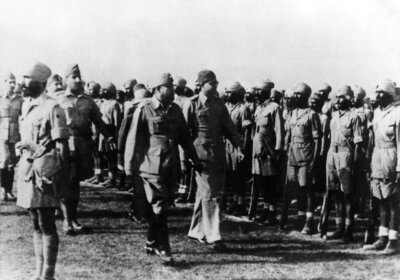

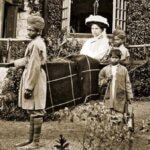
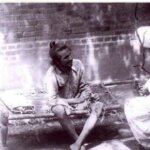


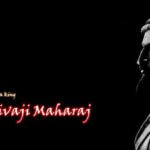




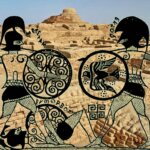





Pingback: The Importance of the Indian National Congress In Indian Democracy